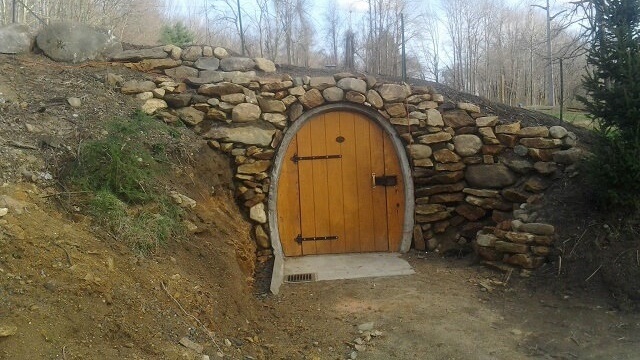
Re-purposing is a great way to save some money on projects around the homestead and turning old concrete culverts into a root cellar is a great example of this. When Reddit user Spiker1986’s brother needed a space to store his excess maple syrup he decided to make a culvert root cellar.
Anyways, the story behind this one is he found these huge cement pipes that were being thrown out (they were used to go under roads). Proceeded to dig out a portion of a hill, set them in and make a root cellar to store kegs of excess syrup in during the offseason – Spiker1986
Below is a quick overview of their building process.
Acquire an old culvert
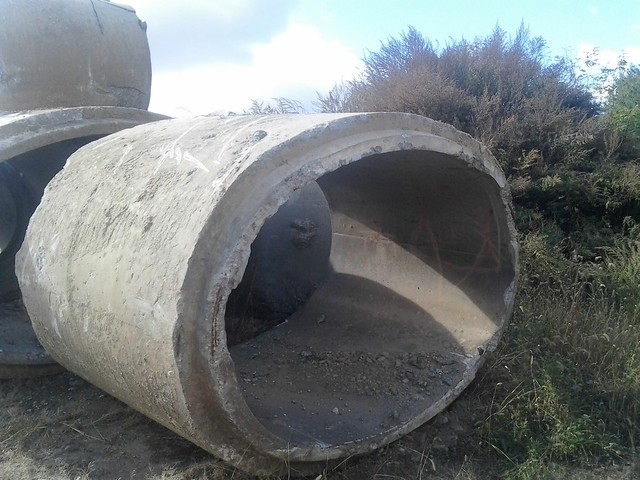
Insert culvert into trench

Cement joints, apply ice and water shield

Flooring choice is dependent on what you are storing

Install a dry well to keep water in check

Back-fill and add a dry stack retaining wall
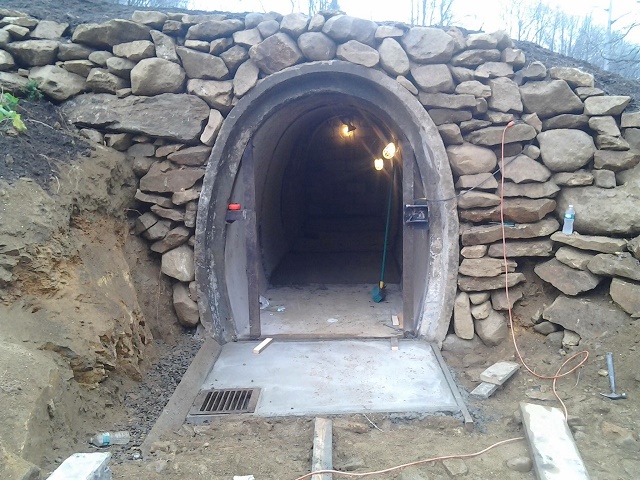
Add a hobbit door to your culvert root cellar
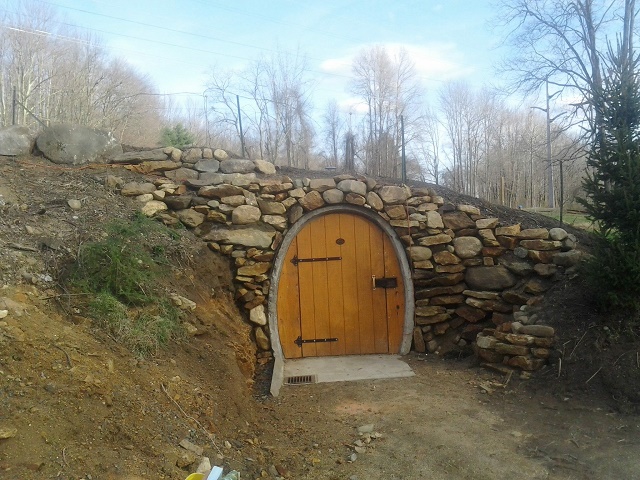
You can see more pictures of the building process at the following link. Good luck with your projects this summer!
…Culvert Root Cellar
Root Cellaring: Natural Cold Storage of Fruits & Vegetables
Root cellaring need not be strictly a country concept. Though it’s often thought of as an adjunct to a large garden, a root cellar can in fact considerably stretch the resources of a small garden, making it easy to grow late succession crops for storage instead of many rows for canning and freezing. Best of all, root cellars can easily fit anywhere. Not everyone can live in the country, but everyone can benefit from natural cold storage.

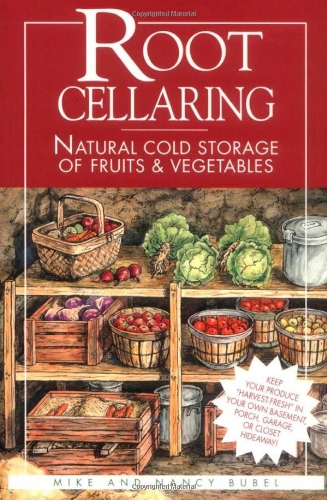




Neat job and I’m sure this must work excellent for the author’s purposes. Not needing so large a cellar, our choice would be to use recycled 55 gal food type ‘drum’ which one place by digging back into a north facing slope (or built up a mound over). I also like the idea of having separate drums for different items – like onions, potatoes, apples etc. That way they don’t ‘gas’ off and ripen/rot each other.